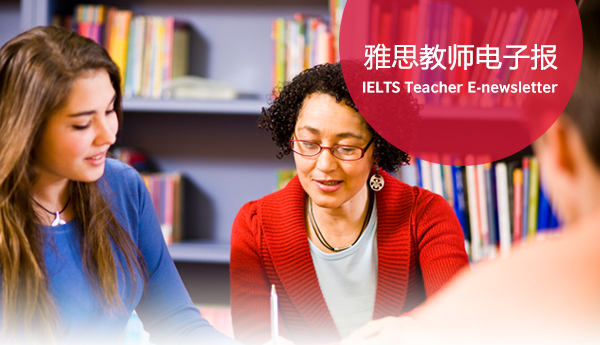|
Do you have questions about teaching, English or IELTS that you would really love an answer to? Send them to colin.barnett@britishcouncil.org.cn or mark.o'sullivan@britishcouncil.org.cn
Remember, we also have a Frequently Asked Questions list on www.chinaielts.org, for you to visit!
IELTS candidates and their teachers often wonder about the role and responsibilities of IELTS examiners. Here we answer some frequently asked questions.
|
 |
Dear Collin,
This is Young from Yichang, we met 2 months ago at the teacher training class in Beijing Language University.
I have a few questions about teaching IELTS speaking that I’d really appreciate your help with:
1) Usually in part 2, there is a main question with 4 guiding questions. If I answered this question in a very good way but I didn't cover those 4 guiding questions, do you think this will affect my scores?
2) Some of my students are very young; they don't have much ‘life experience’. If the part 2 question is based on something they have never experienced, can they just talk about something related to the topic? For example, one question might be to “describe an experience of helping others” but one student might say she said she has never helped others before. So, should she just tell the truth that she has never done so, and explain the reason why she has never helped other people, or something like that? Do you think this is kind of change to the topic will affect her result?
Thank you!
Young
|
 |
Hello Young,
Great to hear from you.
For your first question, the guiding questions are there as a structure to talk with. Candidates are not assessed on whether they answer each bullet point. They should talk about the topic however and using the ideas in the bullets will make it easier for them to remain coherent.
For your second question, look at the advice videos in Road to IELTS (www.roadtoielts.com). The video about speaking shows very clearly what candidates can do in these circumstances.
Hope this helps and get in touch if you need to.
Best,
Colin
|
 |
Dear Colin,
I am an IELTS teacher, and benefit a lot from the IELTS e-newsletter for teachers.
I'd like to ask you a question concerning Writing Task 2, which is, can personal examples be used to support the main idea in each body paragraph?
Thanks you for your time.
|
 |
Hello,
First of all, it’s great to hear that the IELTS e-newsletter is useful for you!
There’s nothing wrong with giving personal examples for the Writing Task 2 essay, and the instructions do invite candidates to ‘include any relevant examples from your own knowledge or experience’.
However, we need to think about the overall Task Response and also the Lexical Resource (vocabulary) for the marking criteria. If you write examples that are more specific to the place where you live or from your general knowledge, rather than just talking about yourself, then you are more likely to use a broader range of supporting examples that are far more relevant to the question and also likely to allow you to display a wider range of vocabulary. This will, of course, improve the overall strength of the essay.
Remember to check out the band descriptors here: https://www.chinaielts.org/pdf/UOBDs_WritingT2.pdf
|
|







